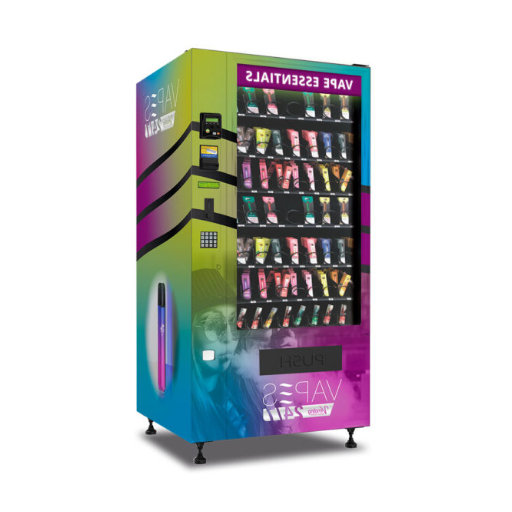Electronic cigarette vending machines are automated retail units designed to dispense e-cigarettes, e-liquids, and related vaping accessories. Their primary purpose is to provide controlled and convenient access to these products, often in locations with specific access restrictions or where staffed retail is impractical.
Core Functionalities and Features
- Age Verification Systems: This is a paramount feature. Machines typically incorporate robust age verification technology, such as ID scanners (driver’s licenses, national ID cards) or integration with third-party digital age verification services to ensure compliance with legal age restrictions for purchasing vaping products.
- Product Selection Interface: Users interact via touchscreens or physical buttons to browse and select products. Detailed product information, including nicotine strength and flavor, may be displayed.
- Payment Processing: Support for various cashless payment methods is standard, including credit/debit cards, mobile payment platforms (e.g., Apple Pay, Google Wallet), and sometimes closed-loop card systems.
- Inventory Management: Advanced machines feature real-time inventory tracking and remote monitoring capabilities. This allows operators to manage stock levels efficiently, receive alerts for low stock or malfunctions, and plan restocking routes.
- Secure Dispensing Mechanism: Products are stored securely and dispensed only after successful age verification and payment.
- Regulatory Compliance Features: Beyond age verification, machines may include functionalities to comply with local regulations, such as transaction logging, sales limits, or displaying mandatory health warnings.
Operational Advantages
- Controlled Accessibility: Can provide access to adult consumers in specific, often age-restricted, environments (e.g., casinos, adult-only venues) while restricting underage access if verification is stringent.
- Reduced Labor Costs: Automation decreases the need for dedicated sales staff, potentially lowering operational expenses.
- Consistent Service: Offers a standardized and efficient purchasing process, available 24/7 where regulations permit.
- Data Collection: Can provide valuable sales data, offering insights into product popularity and consumer preferences for inventory optimization.
Key Challenges and Considerations
- Regulatory Scrutiny and Legal Frameworks: The sale of vaping products is heavily regulated, and these regulations vary significantly by jurisdiction. Obtaining permits and ensuring ongoing compliance with evolving laws regarding sales, marketing, age verification, and product types (e.g., flavor bans) is a major hurdle.
- Effectiveness of Age Verification: The reliability and integrity of the age verification system are critical. Any failure can lead to severe penalties and public health concerns.
- Public Perception and Health Concerns: Vending machines for e-cigarettes can face opposition due to concerns about normalizing vaping or potentially facilitating youth access, even with verification systems in place.
- Security and Vandalism: Machines must be robustly built and may require additional security measures to prevent theft of high-value products or damage.
- Maintenance and Technical Support: Regular maintenance is required for both the hardware (dispensing mechanisms, payment terminals, screens) and software (updates, security patches).
In conclusion, electronic cigarette vending machines offer a technologically advanced solution for retailing vaping products. However, their deployment is intrinsically linked to navigating a complex web of stringent regulations, robustly implementing age verification, and addressing public health considerations. Their success depends on a meticulous approach to compliance and operational integrity.











